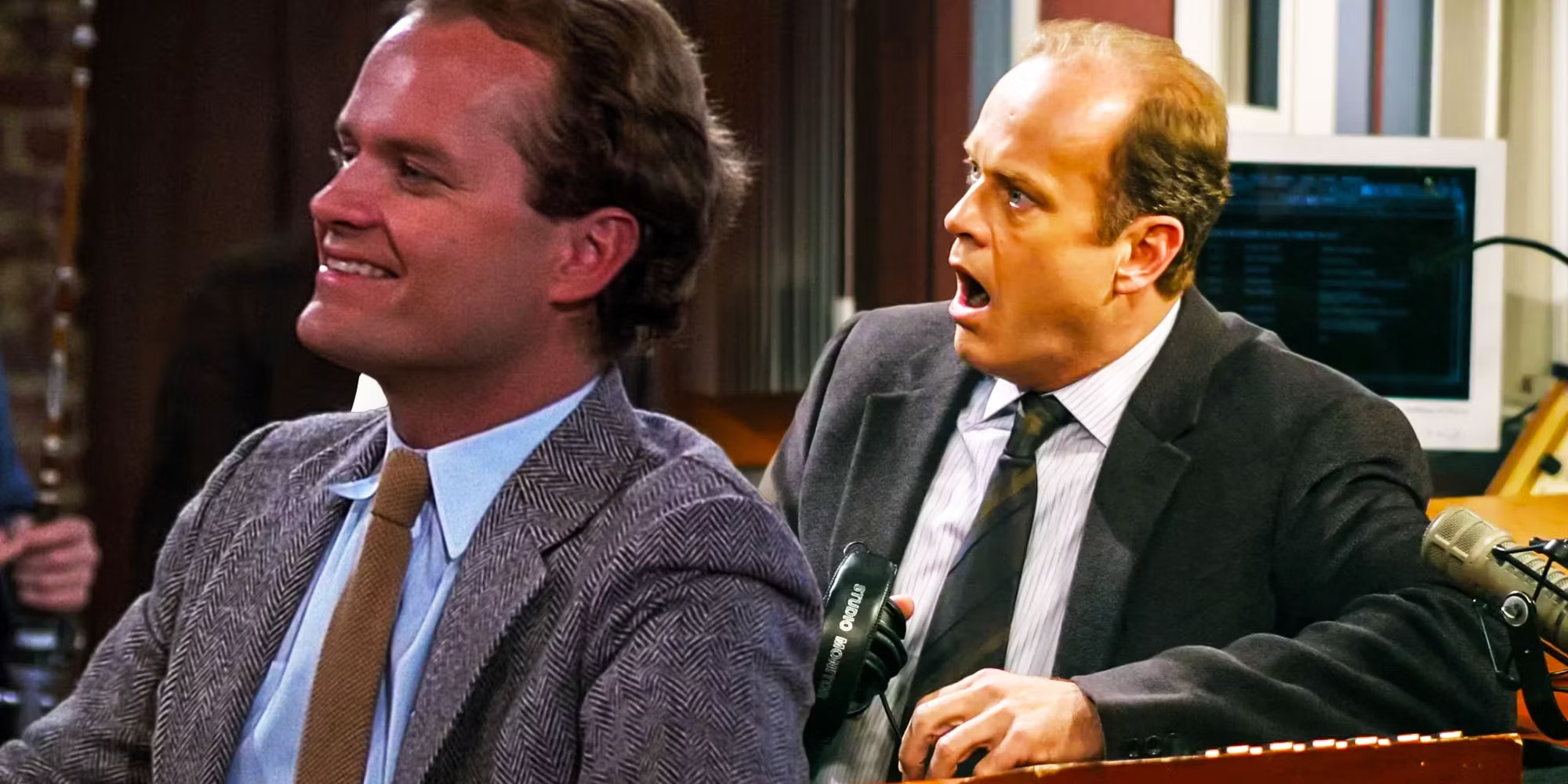The massive success of Frasier proves that it was able to beat a common sitcom spin-off curse, because it outshone and outgrew Cheers entirely. The character of Frasier Crane got his start as a barfly in the Boston-based sitcom Cheers. The psychiatrist proved popular with audiences, and a spin-off was conceived in which Crane would relocate to Seattle, where he would host a call-in talk radio show and live with his disabled father and his eccentric physical therapist.
The premise was a recipe for success, and Frasier quickly became a beloved sitcom in its own right. The excellent dynamic between Frasier Crane, his brother Niles, and father Martin incorporated fast-paced wittiness with traditional family values, making Frasier a comforting and entertaining watch. After running for 11 seasons, Frasier ended in 2004, but its continued popularity and cult success secure its place as one of the most beloved sitcoms of all time.
Frasier‘s success is definitive proof that it overcame its status as a spin-off in ways that other shows find difficult. When building a sitcom, premise is everything, and hinging that premise on the success of another show is a risky endeavor. With spin-offs, there are always comparisons to the original show with regards to tone and quality, and those are pitfalls that Frasier deftly avoided to carve its own niche. There, it thrived, and ensured its status as perhaps the greatest spin-off sitcom ever conceived.
Frasier Left Cheers Behind To Become More Than Just A Spin-Off

The colossal spin-off success of Frasier wasn’t the product of luck, but of carefully selecting the character’s best components and transferring them into the right situations. Carrying over Frasier’s pretentiousness and his snobbery made for some of Frasier‘s best comedy, but it was carefully offset with the working-class nature of Martin Crane, which subtly tied back to Frasier’s Cheers roots. This allowed for Frasier to exist entirely independently of Cheers while still capitalizing on its success – though Frasier is technically a spin-off, prior knowledge of the character isn’t necessary to understand and enjoy his titular show, as the two are largely unrelated.
This allowed Frasier to exist outside of Cheers‘ shadow, carving a new dynamic that skewed decidedly more domestic than Cheers‘. What made Frasier work so well was its perfectly-cast characters and the brilliant chemistry between them, but also the way in which it quickly outgrew its own status as a spin-off. Frasier never relied on its Cheers link to satisfy its audience (although its crossover episodes were generally well-received), but instead focused on properly exploring the depths of the Crane family and their various interpersonal dynamics. This separates Frasier from many other sitcom spin-offs, because they so often attempt to recapture the tone and style of the original show that it effectively dooms them when the inevitable comparisons begin.
Frasier‘s originality was always the show’s biggest asset, because it made the spin-off feel more organic and less like a simple cash grab. Though Cheers was hugely successful in its day, Frasier‘s excellent premise and stellar comedy secured it a lasting legacy as one of the greatest sitcoms of all time. In doing so, Frasier became so much more than a Cheers spin-off, avoiding the traps that most similar shows fall into.





